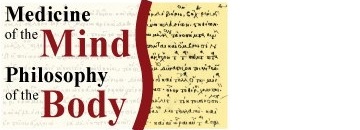Alexander von Humboldt Professorship
The Alexander von Humboldt Professorship of Classics and History of Science held by Philip van der Eijk was founded in January 2010 with support from the Alexander von Humboldt Foundation as part of the „Alexander von Humboldt Professorship“ programme.
The Professorship contributes to research, teaching and public engagement in Classical Studies and the History of Science and Medicine. It has a particular focus on the study of Graeco-Roman medicine and philosophy and their reception.
Its main research activities are subsumed under the programme “Medicine of the Mind, Philosophy of the Body. Discourses of Health and Well-Being in the Ancient World”. This programme is devoted to concepts of mental and physical health as developed in Graeco-Roman antiquity and can be divided into four strands:
- The first strand is devoted to intellectual encounters between medicine, philosophy and science in antiquity, especially concerning the nature of human beings, the relationship between mind and body, the nature of medical and biological knowledge and the constitution of medical expertise.
- The second strand is devoted to the textual nature of medical knowledge and studies the ways in which ideas about health and disease were expressed in technical vocabulary and communicated in rhetorically crafted epistemic genres, such as the treatise, the commentary and the aphorism.
- A third strand is concerned with the social and cultural embedding of ideas and practices of health, especially the role of religion and morality.
- Finally, a fourth strand examines ways in which Graeco-Roman ideas about health and disease were received and transformed in later times, e.g. in the Christian context of late antiquity, in the Islamicate world, in the medieval and early modern Western medical tradition and in today’s discourses of health and well-being on a global scale.
The programme unites approaches to medical history, history of science, ancient philosophy, discourse analysis, classical philology, cultural history, reception studies and the comparative study of knowledge systems.
